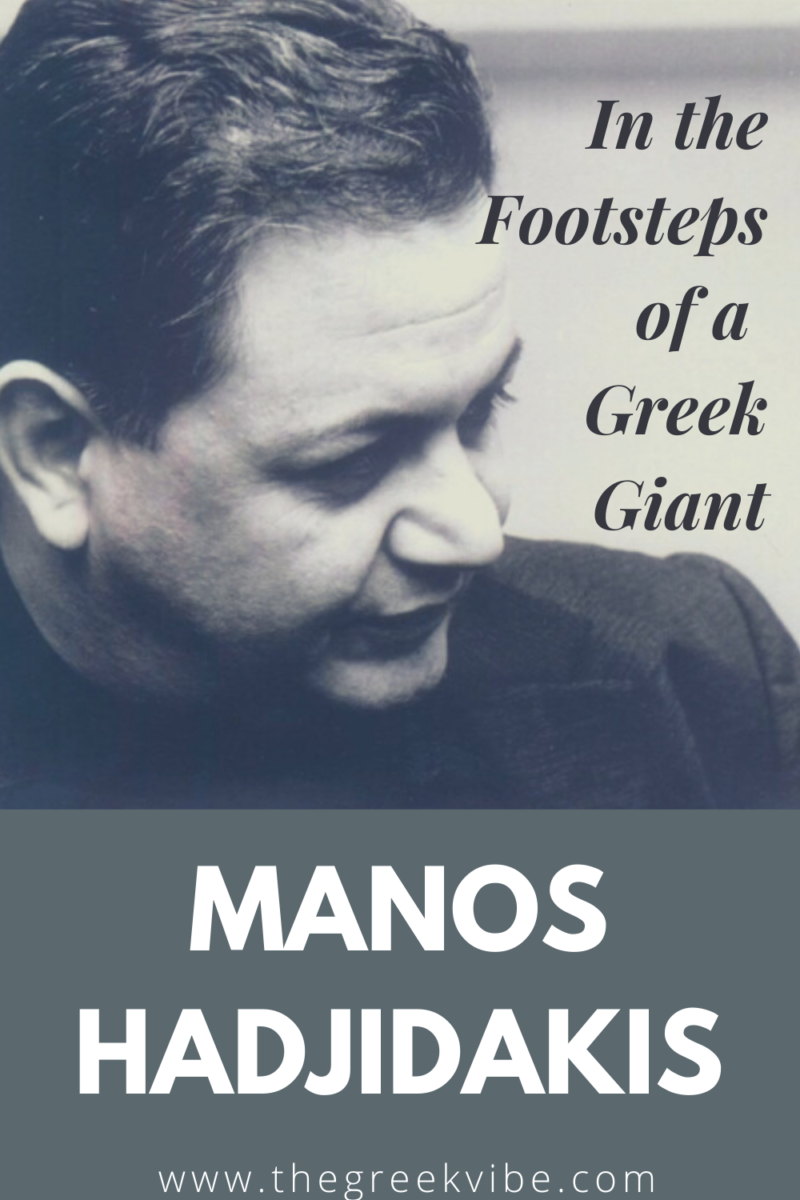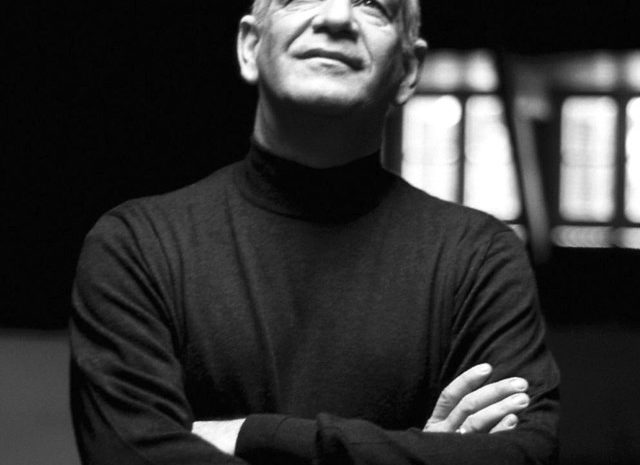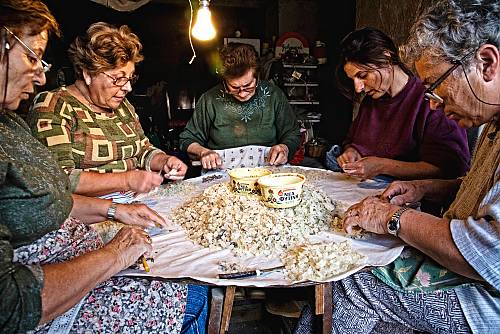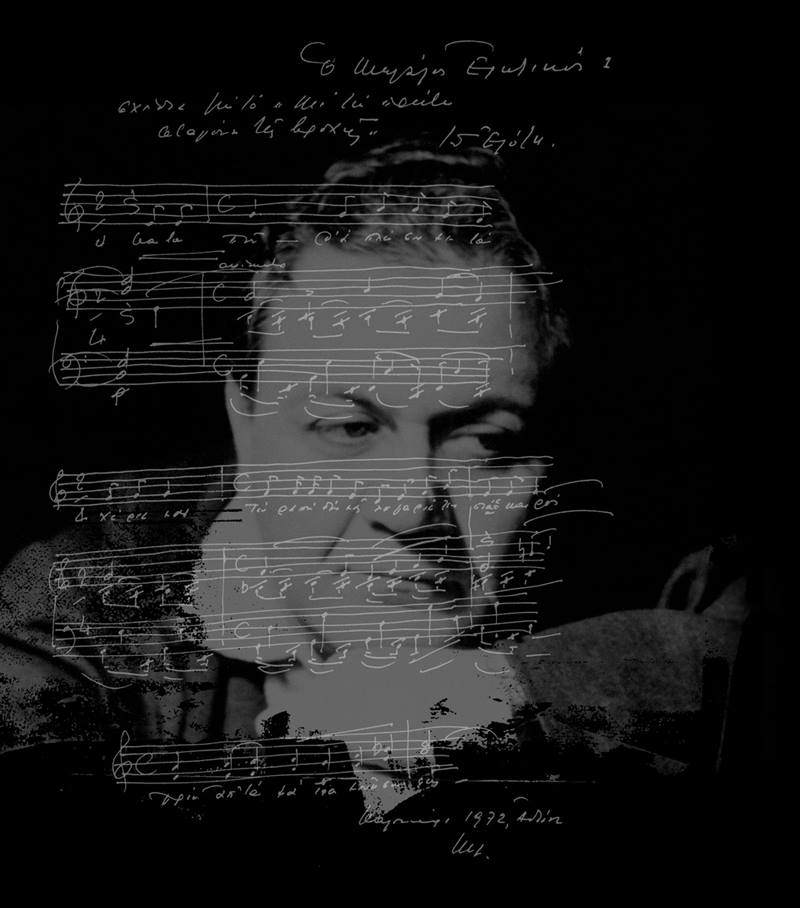
“A torrent of spontaneous reactions in all the areas of our public being: a careless layout of prospects and politics. Lack of common sense and the oppressive presence of our ego, which most often than not comes in the way of our communicating and cooperating on local [issues], and now more recently on European [issues], which have come to concern us.”
(July 15, 1979)
I begin today’s post with (some of the wise) words of the prodigious Manos Hadjidakis. I have always believed, since my adolescence when I first became captivated by his music – and when Hadjidakis passed into a different realm – that he was fortunate.
This was part of an answer Hadjidakis gave to the question on what constitutes Greece today – 42 years ago – and what elements represent the country.
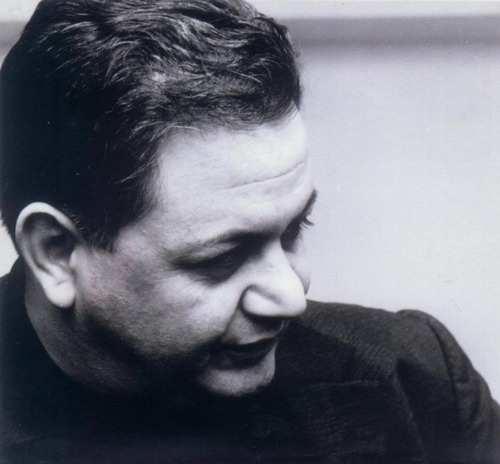
Fortunate in that a man of such inner depth and sensitivity characterized by the rigidness of freedom, the rigor of anarchy and so misunderstood (as is always the case), moved on … leaving this world for the next. I felt that had he lived today, to see the moral deterioration of everything Greek, of everything he loved so dearly, he would have been a very sad man, sickened by what he had described as the “staining and contamination of our cultural environment”.
One of the rumors concerning Hadjidakis’ “peculiar ways” I remember hearing was how he had not allowed latecomers to enter his concerts at the ancient Irodion Theatre. Eccentricity? Or out of respect to art?
Manos Hadjidakis: The Visionary
He believed in “the song that reveals and expresses us from within and does not flatter the hasty and violently forced-upon-us habits” and felt “contempt for those who do not aim for reassessment and spiritual youth, those easily recognized politicians and artists, dark and shady journalism and every form of vulgarity”.
Hadjidakis shunned fame, he never did things the “accepted” way and was more often in the spotlight for his outspoken stance on anything and everything than his riveting music. He was a visionary. Deeply political, his contribution to Greek art and music is inestimable. He was often attacked by “socialist” press for revealing what’s behind politically guided culture. He led the national broadcaster’s Trito Programma into the 21st century and made ERA the experimental ground for fresh offerings, leaving the state-run broadcaster a legacy that has changed very little since his time.
He brought music and culture to the people of rural Greece, setting the groundwork for one of the most popular summer music events taking place every year in Anogeia, Crete – the “Yakinthia” dedicated to Agios Yakinthos – Greece’s St Valentines. He adored Crete, his father’s homeland. He published cultural magazine To Tetarto all about the politics of art and the art of politics. He formed independent label Sirius, which to this day – run by his son – works for (and not against) culture with serious efforts in music. The Orchestra of Colors (Orchestra ton Chromaton) is his brainchild, presenting works rarely performed. And his 1949 lecture on the rebetiko has remained a landmark in music history establishing its role as an independent genre.
But Hadjidakis is not about the music alone… a music that makes us laugh and cry, a music that takes us back to truer times but also forward in the fluid footprints of our dreams.
He is about a philosophy so rare, that once every so often, a member of the human race emerges with such divine inspiration and the means to convey this talent, only to remind us that mankind can also be capable of great things. Behind the guise of what many described as obstinacy was a man of firm beliefs and ideals, of dreams and desires, of passions and weaknesses. He was deeply political. His greatness? Admittance and acceptance – both the result of a tedious inner battle, changing the things one can, accepting the things one can’t, and knowing the difference… to paraphrase theologian Reinhold Niebuhr.
In 1985, Hadjidakis took to the streets to voice his anger for the murder of 15-year-old Michalis Kaltezas by police during the Polytechnic events, and again when an “anarchist” teen was being held at Korydallos prison.
Greece Travels the Globe with Manos Hadjidakis
Hadjidakis made the music of this country of a mere 11 million, music of the world. Greek song and verse traveled the globe through the voices of Dalida.
Nat King Cole, Harry Belafonte, Brenda Lee, Nana Mouskouri, Amalia Rodrigues and Johnny Mathis, to name but a few.
And then, in 1960, the Oscar went to… Greece for his score to Never on Sunday (“Ta Paidia tou Peiraia”).
On June 15, 1994, one of Greece’s supreme composers, the man who made the secular popular, the writer who made everyone uneasy with his stinging pen and cynical word, the dreamer who dared to dream in the land of the “comfortably numb”, the outspoken artist… died depriving Greece of a “different” voice.
One post can only mark the beginning of things to be said about Manos Hadjidakis. For now let us remember:
“There is no end to whatever has happened, to whatever happens and to what the future brings. Perhaps one day I will return for all that is still to happen…”
Manos Hadjidakis
♬ The Greek Vibe pays tribute to the great Manos Hadjidakis.
